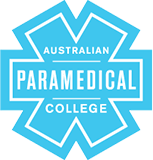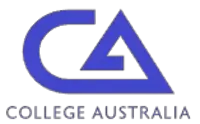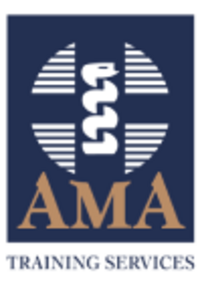
Allied Health courses in Tasmania
Course providers in Tasmania
The following providers offer Allied Health courses in Tasmania.

















































Career Pathfinder
Skills shortages + AI Exposure
Discover in-demand careers and understand how each role may be impacted by AI and automation.
- See in-demand occupations across Australia
- Check AI Exposure ratings
- Compare training duration and average income
Common questions
Occupational therapists help patients perform tasks in daily life, while physiotherapists help patients improve their movement, strength and function. The term occupation refers to everyday life tasks, while physiotherapy refers to physical therapy. Both are science-based allied health roles that aim to improve quality of life through prevention, maintenance and treatment.
 Stephen Charlton
Stephen Charlton
You can become qualified to work as an occupational therapist by completing one of the following degrees, depending on your educational pathway:
- Master of Occupational Therapy (postgraduate degree)
Average duration: 24 months - Bachelor of Occupational Therapy (Honours)
Average duration: 4 years - Bachelor of Occupational Therapy
Average duration: 4 years
 Stephen Charlton
Stephen Charlton
You can become qualified to work as a physiotherapist by completing one of the following degrees, depending on your educational pathway:
- Doctor of Physiotherapy (postgraduate degree)
Average duration: 3 years - Master of Physiotherapy (postgraduate degree)
Average duration: 24 months - Bachelor of Physiotherapy (Honours)
Average duration: 4 years - Bachelor of Physiotherapy
Average duration: 4 years
 Stephen Charlton
Stephen Charlton
Yes, you need to complete an accredited degree to work legally as an occupational therapist or physiotherapist in Australia. The two core pathways are completing a bachelor’s degree or a postgraduate degree. The Occupational Therapy Council of Australia and Australian Physiotherapy Council are responsible for accrediting such courses.
 Stephen Charlton
Stephen Charlton
Yes, overseas-qualified practitioners can work in Australia by registering with the Occupational Therapy Board of Australia or Physiotherapy Board of Australia. Practitioners who are currently registered with the Occupational Therapy Board of New Zealand or Physiotherapy Board of New Zealand can apply directly for Australian registration. Other overseas-qualified practitioners have to fulfil the requirements listed on the relevant webpages of the Occupational Therapy Board of Australia and Physiotherapy Board of Australia.
 Stephen Charlton
Stephen Charlton
If you have already completed an approved degree in a different discipline, you can gain an accredited postgraduate degree to become qualified to work as an occupational therapist or physiotherapist. Examples of such degrees are a Master of Occupational Therapy, Master of Physiotherapy and Doctor of Physiotherapy. Postgraduate degrees in these fields may have additional entry requirements, including but not limited to health-related prerequisite subjects.
 Stephen Charlton
Stephen Charlton
In some cases, completing vocational education and training (VET) in a related discipline can allow you to meet the entry requirements for a bachelor’s degree in these fields. Entry requirements vary between educational providers. Some providers offer a VET entry pathway with a minimum of a Certificate IV, but others require a minimum of a diploma or advanced diploma. Some providers do not offer a VET pathway for these courses at all. Therefore, it’s wise to confirm the entry requirements for your desired bachelor’s degree before starting a VET course.
 Stephen Charlton
Stephen Charlton
In addition to completing an accredited degree, occupational therapists and physiotherapists will need to register with the Occupational Therapy Board of Australia or Physiotherapy Board of Australia to work in Australia. The Australian Health Practitioner Regulation Agency (AHPRA) administers practitioner registration on behalf of these boards. There are different requirements to gain registration for Australian-qualified practitioners, New Zealand-registered practitioners, and other overseas-qualified practitioners.
 Stephen Charlton
Stephen Charlton
Career paths for these professions include independent contracting, starting a practice, working in community care, paediatrics, mental health, rehabilitation, disability, medical or aged care sectors).
 Stephen Charlton
Stephen Charlton
Jobs and Skills Australia reports that the median full-time weekly earnings for occupational therapists and physiotherapists in 2024 are $1,526 and $1,710, respectively. These figures can be contrasted with Australian workers of all occupations, who earn a median full-time weekly income of $1,697.
 Stephen Charlton
Stephen Charlton
There is a significant demand for occupational therapists across Australia. Jobs and Skills Australia’s Occupation Shortage List indicates that the labour market had a shortage of occupational therapists across all states and territories from 2022 to 2024.
 Stephen Charlton
Stephen Charlton
There is substantial demand for physiotherapists in Australia. Jobs and Skills Australia’s Occupation Shortage List indicates that the labour market experienced a shortage of occupational therapists and physiotherapists in most states and territories from 2022 to 2024.
 Stephen Charlton
Stephen Charlton
Working as an occupational therapist or physiotherapist comes with the satisfaction of directly helping to improve patients’ quality of life. Furthermore, the job market is promising, as Jobs and Skills Australia reports there is significant labour market demand for both professions. The future outlook is also positive, as Jobs and Skills Australia reports that the annual employment growth in 2024 for occupational therapists and physiotherapists is 2,200 and 4,100, respectively.
 Stephen Charlton
Stephen Charlton
Further reading


What can you do with a Certificate IV in Allied Health Assistance (Physiotherapy)?
3rd March 2022
What can you do with a Certificate III in Allied Health Assistance?
8th January 2020All courses
- HLT33021 Certificate III in Allied Health Assistance
- HLT47321 Certificate IV in Health Administration
- CHC43315 Certificate IV in Mental Health
- CHC53315 Diploma of Mental Health
- HLT52021 Diploma of Remedial Massage
- HLT41120 Certificate IV in Health Care
- HLT54121 Diploma of Nursing
- 22656VIC Advanced Diploma of Myotherapy
- Bachelor of Science (Genetics and Genomics)
- HLT47315 Certificate IV in Health Administration
- Master of Child and Adolescent Mental Health
- Biomedical Science (Exercise and Health)
- Bachelor of Medical Studies / Doctor of Medicine
- CHCCCS010 Maintain a High Standard of Service
- HLT43021 Certificate IV in Allied Health Assistance
- HLT33115 Certificate III in Health Services Assistance
- CHCSS00102 Mental Health Co-existing Needs Skill Set
- HLT43015 Certificate IV in Allied Health Assistance (Physiotherapy)
- HLTCAR001 Perform Electrocardiography (ECG)
- Bachelor of Biomedical Science (Human Physiology)
- CHCSS00075 Chronic Disease Self-Management
- Master of Sport and Exercise Science
- Graduate Certificate in Sport and Exercise Science
- Master of Sports and Exercise Physiotherapy
- 22316VIC Advanced Diploma of Myotherapy
- Bachelor of Criminal Justice and Psychological Studies
More about Allied Health courses
Explore the exciting field of Allied Health in Tasmania, with a diverse range of courses available to suit various experience levels. Whether you're starting your educational journey or looking to advance your career, there are options for everyone. For beginners, the Certificate III in Allied Health Assistance HLT33021 is a fantastic entry point, equipping you with essential skills to support health professionals and work directly with clients. Delivered by the reputable GYC, this course is perfect for those who wish to enter the health care sector.
For those with existing qualifications or experience, Tasmania offers multiple advanced course options to help you specialise and elevate your career. Consider enrolling in the Diploma of Mental Health CHC53315, available through RGIT. This programme prepares students for various roles in mental health, allowing you to make a significant difference in people's lives.
Higher education pathways are also accessible, including the Bachelor of Nursing, offered by the esteemed University of Tasmania. This degree equips aspiring nurses with the necessary theoretical knowledge and practical skills to excel in their careers, paving the way to becoming registered nurses in various healthcare settings across Tasmania.
Advanced learners might also find interest in pursuing clinical roles through courses such as the Master of Social Work (Qualifying) and the Bachelor of Social Work (Honours). These qualifications prepare students for impactful careers in social work, enabling them to address complex social issues and advocate for those in need.
For students interested in the medical field, consider enrolling in the Bachelor of Medical Studies / Doctor of Medicine, which leads you into a rewarding career as a physician. With these course offerings, aspiring professionals in Tasmania have the opportunity to enhance their skills and further their careers in the thriving Allied Health sector. To learn more about all available courses, visit our Allied Health Courses in Tasmania page.
